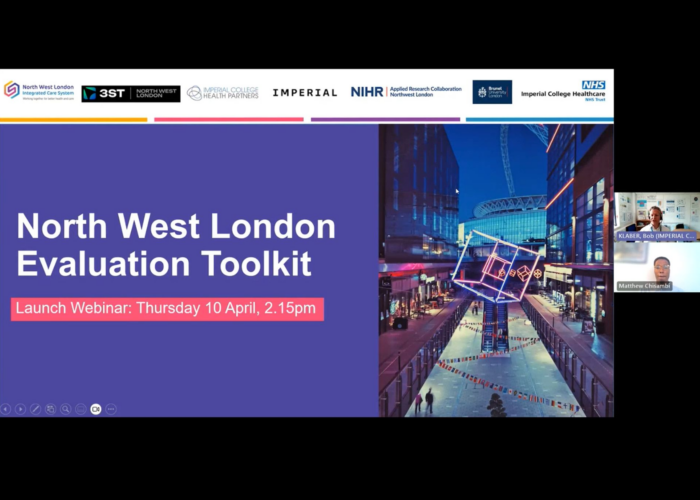On World Patient Safety Day, Sadie Myhill, Senior Engagement and Involvement Lead, and Lucie Wellington, Senior Innovation Advisor, reflect on how ICHP are delivering sector-leading patient engagement to transform services.

Evidence shows that when patients are treated as partners in their care, significant gains are made in safety, patient satisfaction and health outcomes. Patient & public engagement and involvement (PPIE), meaningfully involving patients, service users and the public in shaping our work, is crucial in delivering high-quality care and reducing the burden of harm.
At ICHP, our Deliberation and Engagement partnership with Ipsos UK, meaningfully and authentically involves citizens in decision-making about complex health and care related problems. We bring together leading expertise in public deliberation, dialogue and engagement with a deep knowledge of healthcare policy and delivering complex change, while patients and the public bring their own insights, values and experiences.
The process couldn’t be further from an add-on or box-ticking exercise. Through our partnership we’re ensuring we that we are designing projects with, and for, patients and the public from the start. By involving a diverse range of contributors (reflective of our local population) and listening to and then acting on the feedback from these groups, those working in health and care can shape better solutions and have more impact.
Our recent deliberative programme around changes to urgent and emergency care (UEC), commissioned by NHS England (London region), focused on patient and staff expectations in relation to these services. The NHS responds to over 110million urgent calls or visits a year. Services and staff are under strain. Within this challenging landscape, we need to ensure services work for everyone and that patients’ needs are met in a safe, appropriate and person-centred way. The deliberation explored issues that lie at the heart of patient safety, including how to build trust and confidence in – and between – services and how to triage patients safely to the best care setting for their needs. The process invited people in to understand the complexity and gave them meaningful input into solutions, which can now be taken forwards with confidence.
And we’re embedding PPIE across our work. As part of the National Medicines Safety Improvement Programme, we’re working collaboratively with the NWL integrated care system to improve chronic (non-cancer) pain management by reducing harm from opioids. Evidence shows opioids should not be used to manage chronic (non-cancer) pain as harm outweighs the benefit (NICE, 2021). Our goal is to improve patient safety by reducing long-term and high-dose prescribing of oral or transdermal opioids with support from the NWL Patient Safety Collaborative. We’re putting patient engagement is at the heart of this work.
We have embedded this via our work with local PCNs and are collaborating with our local polypharmacy programme on a behaviour change campaign which empowers patients to take part in structured medicine reviews, facilitated through shared decision-making with their healthcare professional.
We have adopted learning from the Mental Health Safety Improvement Programme and introduced an experts by experience initiative which seeks active involvement of patients in shaping our programme strategy and developing patient and clinician facing resources. Chronic pain is a hugely complex condition, so the expertise of patients with chronic pain and their unique insights into the challenges of living with the condition are essential to incorporate into our work from the outset. By having experts by experience in the programme, it enables us to ensure our approach is patient-centred and tailored to individual needs and promoting a holistic approach to pain management. And by recruiting two to three experts by experience, it can provide some peer-support between patients and helps us ensure our intervention is more effective, empathetic and relevant to the patient cohort – and therefore result in better patient outcomes. The programme is already delivering fantastic impact for our population and improving patient safety – we’re extremely proud that, guided by NWL co-leadership and our shared dedication to making an impact, to date our 2023-24 programme has supported improvements in pain management resulting in on average 57 fewer people each month on high dose opioids. You can explore more on this here.
We’re now actively seeking passionate individuals with experience of chronic (non-cancer) pain and opioid medications such as codeine, tramadol or morphine to help us reduce harm from opioids for people in NWL. For those interested, or willing to contribute, please get in touch.
Engaging and elevating the voices of patients and the public is crucial to our success as a healthcare system. Not only can we deliver lasting, meaningful change but we can ensure patient safety is at the heart of this.
To learn more about our patient safety approach to Opioids, visit get in touch with Lucie.Wellington@imperialcollegehealthpartners.com.
To learn more about our approach to PPIE, get in contact with Sadie.Myhill@imperialcollegehealthpartners.com.



